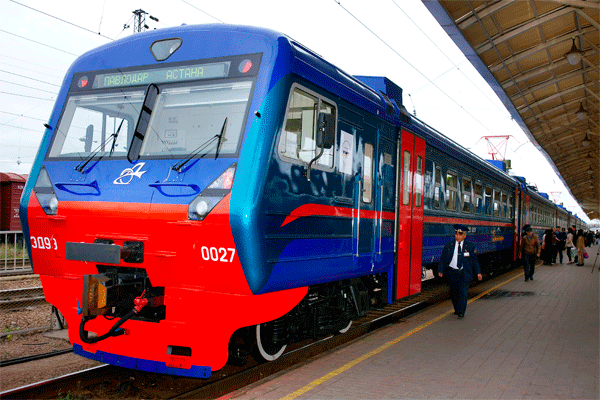ASTANA – Kazakhstan Temir Zholy recently placed five-year Eurobonds worth 170 million Swiss francs on the Swiss Stock Exchange and the Astana International Financial Centre’s (AIFC) Exchange.
The Eurobonds were placed with yield to maturity and coupon of 3.25 percent per annum, the press service of the company reports.
“Placing Eurobonds in Swiss francs corresponds to foreign exchange earnings from the transit of freight traffic. This will reduce currency risks and balance the debt repayment profile, reducing the burden on servicing short-term liabilities of the company. Kazakhstan Temir Zholy continues to reduce currency risks and debt load,” Kazakhstan Temir Zholy’s Deputy Chairman of the Board for Finance Zhaslan Madiyev said.
The placement of Eurobonds for more than 100 million Swiss francs is a significant one for the Swiss market. About 30 investors invested in the bonds of the Kazakh national company.
“Despite the strong volatility at the international capital markets, Kazakhstan Temir Zholy was able to successfully strengthen its presence in the Swiss corporate bond market. Both large institutional investors in Switzerland and private banks’ clients took part in the issue,” the press service of the company reports.
The new issue of Eurobonds of the company received a BBB credit ratings, which is a sufficient level of credit worthiness according to Fitch, and an equivalent Baa3 from Moody’s.
Kazakhstan Temir Zholy is a vertically integrated transport and logistics holding with 100 percent state participation. The company has transformed from a railway company to a transport and logistics holding with the task of developing Kazakhstan’s transit capacity and ensuring its global infrastructure integration. These responsibilities cover rail, maritime, logistics centres and road infrastructure development.
The company works on numerous infrastructure projects under the Nurly Zhol state programme, participating in the implementation of the 100 Concrete Steps Plan of the Nation and modernisation of transit assets, including the dry-cargo and ferry fleet. It also participates in the institutional development of international transport passages.

